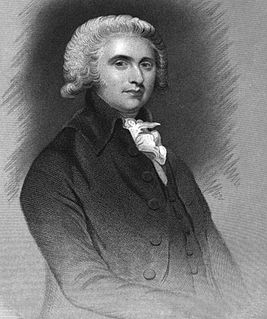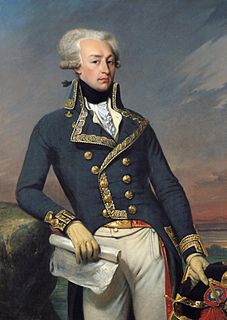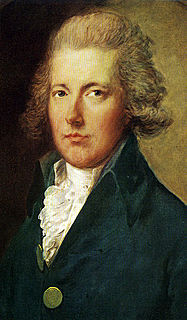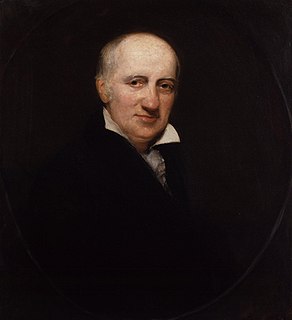Related Research Articles

Samuel Taylor Coleridge was an English poet, literary critic, philosopher and theologian who, with his friend William Wordsworth, was a founder of the Romantic Movement in England and a member of the Lake Poets. He also shared volumes and collaborated with Charles Lamb, Robert Southey, and Charles Lloyd. He wrote the poems The Rime of the Ancient Mariner and Kubla Khan, as well as the major prose work Biographia Literaria. His critical work, especially on William Shakespeare, was highly influential, and he helped introduce German idealist philosophy to English-speaking culture. Coleridge coined many familiar words and phrases, including "suspension of disbelief". He had a major influence on Ralph Waldo Emerson and American transcendentalism.

This article contains information about the literary events and publications of 1796.

Charles Lamb was an English essayist, poet, and antiquarian, best known for his Essays of Elia and for the children's book Tales from Shakespeare, co-authored with his sister, Mary Lamb (1764–1847).

Mary Ann Lamb was an English writer. She is best known for the collaboration with her brother Charles on the collection Tales from Shakespeare. Mary suffered from mental illness, and in 1796 she stabbed her mother to death during a mental breakdown. She was confined to mental facilities for most of her remaining life. She and Charles presided over a literary circle in London that included the poets William Wordsworth and Samuel Taylor Coleridge, among others.
Joseph Cottle (1770–1853) was an English publisher and author.

Charles Lloyd II, poet, was a friend of Charles Lamb, Samuel Taylor Coleridge, Robert Southey, William Wordsworth, Dorothy Wordsworth and Thomas de Quincey. His best-known poem is "Desultory Thoughts in London".
Samuel Taylor Coleridge was born on 21 October 1772. The youngest of 14 children, he was educated after his father's death and excelled in classics. He attended Christ's Hospital and Jesus College. While attending college, he befriended two other Romanticists, Charles Lamb and Robert Southey, the latter causing him to eventually drop out of college and pursue both poetic and political ambitions.
On Receiving an Account that his only Sister's Death was Inevitable was composed by Samuel Taylor Coleridge in 1794, and deals with the death of Coleridge's step-sister Ann (1791), as well as that of his brother Luke (1790). A later poem, was written for Coleridge's friend Charles Lamb and seeks to comfort him after the loss of his sister.
Religious Musings was composed by Samuel Taylor Coleridge in 1794 and finished by 1796. It is one of his first poems of critical merit and contains many of his early feelings about religion and politics.
"To the River Otter" is a sonnet by Samuel Taylor Coleridge. Though its date of creation is uncertain, it was possibly composed in 1793. It deals with the image of the River Otter, near Coleridge's childhood home in Devon.
Sonnets on Eminent Characters or Sonnets on Eminent Contemporaries is an 11-part sonnet series created by Samuel Taylor Coleridge and printed in the Morning Chronicle between 1 December 1794 and 31 January 1795. Although Coleridge promised to have at least 16 poems within the series, only one addition poem, "To Lord Stanhope", was published.

"To Erskine" or "To the Hon Mr Erskine" was written by Samuel Taylor Coleridge in November 1794. The subject of the poem is Thomas Erskine, a lawyer and member of the Whig party, who successfully served in the defense of three political radicals during the 1794 Treason Trials. Coleridge admired Erskine's defense and praised his refusal to accept money for his service. The poem was published in the 1 December 1794 Morning Chronicle as part of the Sonnets on Eminent Characters series. It was later included in various collections of Coleridge's poetry published later.

"To Burke" is a sonnet by Samuel Taylor Coleridge first published in the 9 December 1794 Morning Chronicle. Unlike most of the Sonnets on Eminent Characters, "To Burke" describes a person whom Coleridge disagreed with; he felt Edmund Burke abused the idea of freedom within various speeches and turned his back on liberty.

"To Fayette" was written by Samuel Taylor Coleridge and published in the 26 December 1794 Morning Chronicle as part of the Sonnets on Eminent Characters series. Coleridge, like other Romantic poets, viewed Gilbert du Motier, marquis de Lafayette as a hero of liberty for his part in the American and French revolutions. The poem coincides with Fayette's imprisonment in Austria, and he is treated as a martyr for liberty. The language Coleridge uses within the poem to describe Fayette and revolutions appears in many of his later works.

"To Pitt" is a political poem written by Samuel Taylor Coleridge and published in the 26 December 1794 Morning Chronicle as part of the Sonnets on Eminent Characters series. Describing William Pitt the Younger and his role as Prime Minister of Great Britain, the poem is one of the few in the series that is not about a hero of Coleridge. Instead, Pitt is described as Judas, the betrayer of Christ, because of, among other issues, his treatment of political dissidents.

"To Godwin" or "To William Godwin" was written by Samuel Taylor Coleridge and published in the 10 January 1795 Morning Chronicle as part of the Sonnets on Eminent Characters series. William Godwin was admired by Coleridge for his political beliefs. However, Coleridge did not support Godwin's atheistic views, which caused tension between the two. Although the poem praises Godwin, it invokes an argument that the two shared over theological matters. After the poem was written, the relationship between Coleridge and Godwin cooled and the poem was not reprinted.

"To Lord Stanhope" is a poem written by Samuel Taylor Coleridge. It was published in his 1796 collection of poems. The subject, Charles Stanhope, 3rd Earl Stanhope, had originally shared political views with Coleridge, but as time passed, Coleridge's views gradually shifted. By 1803, Coleridge was claiming that he did not want the poem published anymore and that it was originally intended to mock those who held the beliefs which Coleridge had held years earlier. It is part of the Sonnets on Eminent Characters series, although it was not published in the Morning Chronicle unlike the others in the series. There is, however, a possible predecessor sonnet to the 1796 version that some editors have attributed to Coleridge.

The 19th-century English writer Charles Lamb's letters were addressed to, among others, William Wordsworth, Samuel Taylor Coleridge, William Godwin, and Thomas Hood, all of whom were close friends. They are valued for the light they throw on the English literary world in the Romantic era and on the evolution of Lamb's essays, and still more for their own "charm, wit and quality".
Peter Crompton (1765–1833) was an English physician, political radical and brewer.
References
- ↑ "Charles Lamb: Works of Charles and Mary Lamb. VI-VII. Letters: Contents". www.lordbyron.org.
- ↑ Roe, Nicholas. "Coleridge's Watchman Tour". Friends of Coleridge. Coleridge Bulletin. Retrieved 17 November 2015.
- ↑ Johnson, S. F., 'Coleridge's The Watchman: Decline and Fall', The Review of English Studies, 1953
- ↑ "The Watchman". Archive Org. Retrieved 17 November 2015.
- ↑ Perry, Seamus (30 September 1999). Coleridge and the Uses of Division. University of Oxford: Clarendon Press. pp. 320. ISBN 978-0-19-818397-6 . Retrieved 17 November 2015.
- ↑ Patton, Lewis. "Excerpt from: The Collected Works Of Samuel Taylor Coleridge - The Watchman" (PDF). University of Pennsylvania website. Princeton University Press. Retrieved 17 November 2015.